Published Mar 19, 2018
Celebrating World Storytelling Day
Celebrating World Storytelling Day
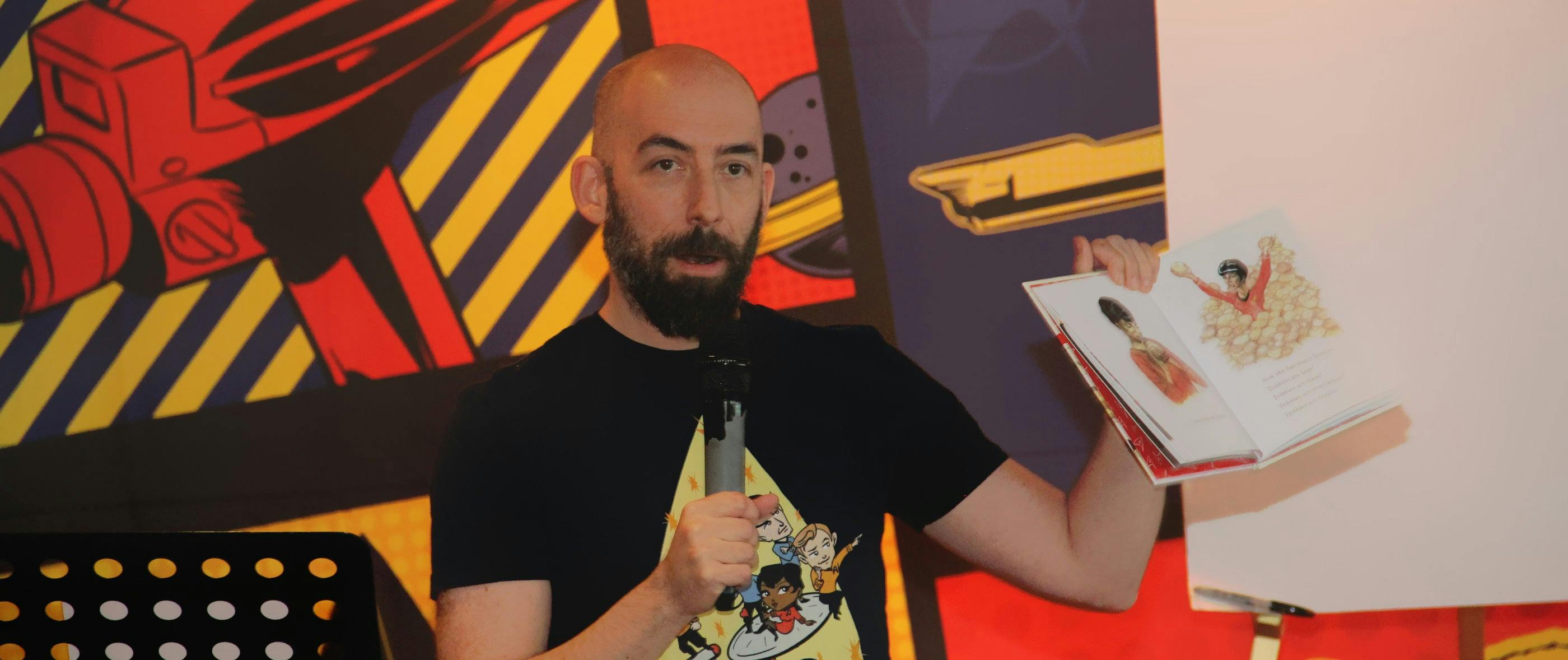
Remember how it felt when you were a kid and went to your friend’s house and got to play with their toys? That’s how it feels whenever I get to write a Star Trek book. I’m given access to a playset filled with the best, most fully-articulated and sometimes most-articulate action figures (they’re not dolls, they’re action figures), and the license (both literal and figurative) to tell their stories. And the best part is the dolls—I mean action figures—actually gain in value now that they’re out of their original packaging.
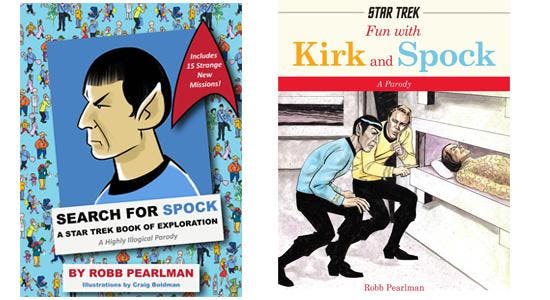
I love telling Trek stories. And I’m not the only one. Writers—both professional and amateur—have told me just how much fun it is adding shades and new dimensions to iconic characters, introducing new species, and, well, exploring strange new worlds of their own imagination, all inspired by Gene Roddenberry’s original creation. The saying “I hate writing. I love having written,” usually attributed to Dorothy Parker or sometimes George R. R. Martin, doesn’t seem to apply to Trek. Whenever I get a chance to speak with my fellow writers, at conventions or elsewhere, we all agree that the sheer joy of using your keyboard to put yourself, along with the crew, on the bridge of the Enterprise or Voyager or Discovery is like nothing else. Admittedly, none of us relish the feeling we get when, at 3am the day before a manuscript is due, and we’re staring at the cursor blinking on our computer screen tempting us to make that sentence a little better, that story beat a little punchier, that Red Shirt’s death a little more meaningful. It’s a feeling not unlike, I’m sure, the agony felt by the anguished Horta in "The Devil in the Dark" and, I’m also sure, our friends and loved ones are somewhat relieved when, after we hit the ‘send’ button, we go back to saying “the phone is ringing” rather than “incoming transmission, Captain.” But we still wouldn’t trade it for anything in the quadrant.
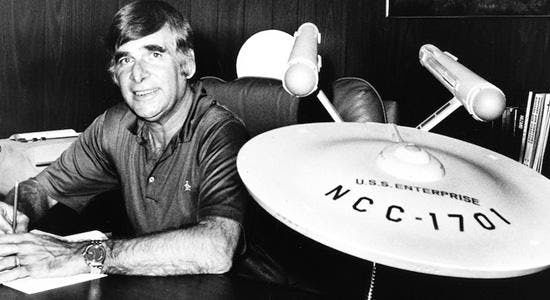
Storytelling is a huge part of Trek’s DNA. Before making the jump into television, Gene Roddenberry was a speechwriter for the Los Angeles Police Department. Speechwriting, like any other form of writing is, at its heart, storytelling. He told the stories of the tragedies and triumphs of the department, its officers, and, in a way, the city of Los Angeles. Scotty may’ve known his way around a ship’s warp core, but Roddenberry, an experienced storyteller, engineered Trek’s very core to be a transport for meaningful, layered and timeless stories.

On one strand, each and every Trek episode and film tells a story—some individual, some part of a greater narrative, and some, let’s be honest, better than others. It has, over a half-century-plus, employed hundreds of screen and television writers, but it’s also allowed as many, if not more, hair and makeup artists, costume, set, and prop designers, cinematographers, and directors to contribute to those stories as well. With the help of science, the stories based on Roddenberry’s creation was, and continues to be, quite literally, beamed (or streamed) directly into our homes, imprinted on magic disks, or projected onto viewscreens for mass audiences. The books, comics, role playing games, video games, all tell their own stories, and are created not only by writers and artists, but by teams of editors, designers, and other creatives, each of whom contribute to the greater story. All of these stories continue to challenge our ideas of who we are, who we should be, and who we want to be.
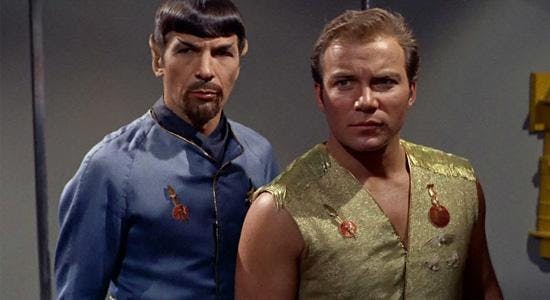
And finally (and before I beat this DNA metaphor so badly I’m forced to serve as the patient in a holodeck game of Operation while Drs. McCoy, Crusher, Bashir, all drunk on Andorian Ale, try to relieve me of my “writers cramp” bone while a chorus of EMDs dryly cheer them on), we come to the second strand of Trek DNA. This one requires a bit of a deep dive, but if you’ll allow it, I propose that the idea of storytelling itself is inextricably associated with one of Starfleet’s central tenants: The Prime Directive. Starfleet General Order 1 (it’s #1 so you just know it’s the important one), dictates that Starfleet should not interfere with other cultures. In essence, it insists on each civilization’s right to tell their own stories. Humans, Vulcans, Tellarites, Klingons, Romulans, Ferengi, Betazoids, heck, even Mirror Universe Terrans have their own stories to tell. As do the untold members of each of those civilizations. Loki and Bele each had their own stories to tell. Was one of them the right one? Or the more right one? Janeway’s story was no less an important one to tell than Seven of Nine’s. I’d wager that neither Nero nor Shinzon considered themselves to be anything but the heroes in their own stories. And Burnham’s story on Vulcan may, as of this writing, at least, be more mysterious than Spock’s or even Sybok’s, but I bet it’s no less rich.
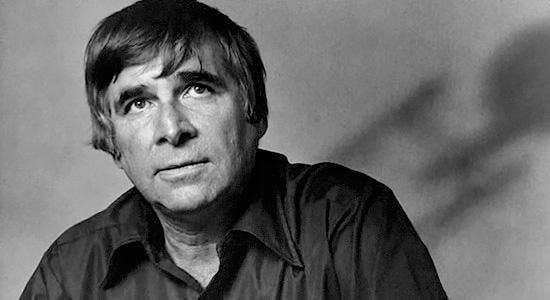
To paraphrase storyteller Candice Bushnell’s storytelling Carrie Bradshaw, I “can’t help but wonder,” if we shouldn’t add one more gift to the long list of presents we’ve received from Trek: A note to us, from Roddenberry, that reads “We all have stories to tell.” Whether they’re about ourselves, each other, or cultures imagined or just not-yet discovered, storytelling is part of human nature. And though we may not be able to board the Enterprise and travel to the Final Frontier, we can all be storytellers.
Robb Pearlman is the author four Star Trek books, the most recent being Search for Spock: A Star Trek Book of Exploration: A Highly Illogical Parody. If you're searching for him, it's best to look at a Con or robbpearlman.com.

